Providing early career professionals with the tools needed to create strong platforms upon which to base their careers takes effort from many. To help provide a plethora of opportunities for early career polar professionals, we have officially partnered with a number of organizations to work together to shape the future of polar research. Here is a list of the organizations that APECS has signed Memorandums of Understanding (MoUs) with to ensure effective and efficient collaborations (in alphabetical order) as well as some other partners that APECS works with very frequently:
Partnerships with MoU:
-
Arctic Frontiers
 APECS and Arctic Frontiers have renewed their partnership agreement in 2017 for another 3 years.
APECS and Arctic Frontiers have renewed their partnership agreement in 2017 for another 3 years.Both parties recognize the importance of bringing forward and establishing meeting places for young scientists. As part of this agreement, APECS will help to organize a pre-conference career development workshops, the Young Scientist Forum, coordinate outstanding presentation awards for young researchers, and help with a 'speed-dating' reception to help new polar researchers meet more established colleagues. APECS will also be invited to become a member of the Arctic Frontiers Advisory Board.
Arctic Frontiers is an annual international meeting place for the discussion of pan-arctic issues. Arctic Frontiers aims to provide a better understanding of Arctic regions within a pan-arctic perspective, and to promote sustainable levels of human activity based on scientific knowledge, cultural sensitivity and cooperation across borders. Arctic Frontiers is organized as an independent network and was established in 2006. The Arctic Frontiers network consists of the following entities: University of Tromsø; Research Council of Norway; Institute of Marine Research; Troms County; ConocoPhillips; Akvaplan-niva; Norwegian Barents Secretariat; Norwegian Polar Institute; ARCTOS; NORUT; Arctic NET; University of the Arctic.
For more information, please visit http://www.arcticfrontiers.com/
-
Arctic Research Consortium of the United States (ARCUS)
 The Arctic Research Consortium of the United States (ARCUS) was formed in 1988 to identify and bring together the distributed human and facilities resources of the Arctic research community—to create a synergy for the Arctic in which each resource, when combined with others, can result in a strength that enables the community to rise to the many challenges facing the Arctic. ARCUS members join in a common purpose of advancing knowledge of the Arctic through science, technology, indigenous knowledge, and other forms of knowing; promoting the application of this knowledge to circumpolar Arctic problems; and addressing in concert those questions that require the collaborative skills and resources of scientists, engineers, indigenous knowledge holders, and others throughout the world. ARCUS provides a mechanism for the Arctic community to complement the advisory roles of other national organizations that are concerned with the Arctic, such as the U.S. Arctic Research Commission (USARC), the Polar Research Board (PRB), and the Interagency Arctic Research Policy Committee (IARPC). ARCUS collaborates with international Arctic organizations, such as the International Arctic Science Committee (IASC), the Arctic Council and its scientific working groups, and the Association for Polar Early Career Scientists (APECS).
The Arctic Research Consortium of the United States (ARCUS) was formed in 1988 to identify and bring together the distributed human and facilities resources of the Arctic research community—to create a synergy for the Arctic in which each resource, when combined with others, can result in a strength that enables the community to rise to the many challenges facing the Arctic. ARCUS members join in a common purpose of advancing knowledge of the Arctic through science, technology, indigenous knowledge, and other forms of knowing; promoting the application of this knowledge to circumpolar Arctic problems; and addressing in concert those questions that require the collaborative skills and resources of scientists, engineers, indigenous knowledge holders, and others throughout the world. ARCUS provides a mechanism for the Arctic community to complement the advisory roles of other national organizations that are concerned with the Arctic, such as the U.S. Arctic Research Commission (USARC), the Polar Research Board (PRB), and the Interagency Arctic Research Policy Committee (IARPC). ARCUS collaborates with international Arctic organizations, such as the International Arctic Science Committee (IASC), the Arctic Council and its scientific working groups, and the Association for Polar Early Career Scientists (APECS).More about AGU at https://www.arcus.org/
-
European Polar Board (EPB)
 The European Polar Board (EPB) is an independent European Organization of Directors and Managers of the major European National Polar Programmes. It was established in 1995 by the European Science Foundation as a strategic advisory body on Polar Science. It is concerned with major strategic priorities in the Arctic and Antarctic and has members from national operators and research institutes in 18 countries.
The European Polar Board (EPB) is an independent European Organization of Directors and Managers of the major European National Polar Programmes. It was established in 1995 by the European Science Foundation as a strategic advisory body on Polar Science. It is concerned with major strategic priorities in the Arctic and Antarctic and has members from national operators and research institutes in 18 countries.The EPB’s mission is to coordinate European Arctic and Antarctic research, optimize the use of European research infrastructures, foster multilateral collaboration between European national funding agencies, national polar institutes and research organizations and represent polar issues within European research framework programmes.
EPB acts in the European context, with a bipolar vision, a scientific and managerial membership and the ability to support scientific activities and cooperation by means of coordinated polar facilities and field operations. Over 40 polar stations in the Arctic and Antarctic are managed by EPB members.
The European Polar Board has active liaison with major polar programmes outside of Europe and with international polar scientific organisations and networks and other relevant international agencies.
For more information, please visit http://www.europeanpolarboard.org/ -
International Antarctic Institute (IAI)
The International Antarctic Institute (IAI) is a global consortium of universities and organisations that offer university-level education in Antarctic sciences and conduct Antarctic research. Motivated by the spirit of the Antarctic Treaty, the IAI promotes international collaboration by facilitating student and faculty exchanges, giving access to a wide range of courses and field studies through its member universities and developing innovative classroom and field-based education programs.
For more information visit http://www.iai.utas.edu.au/cms/home.
-
International Association of Cryospheric Sciences (IACS)
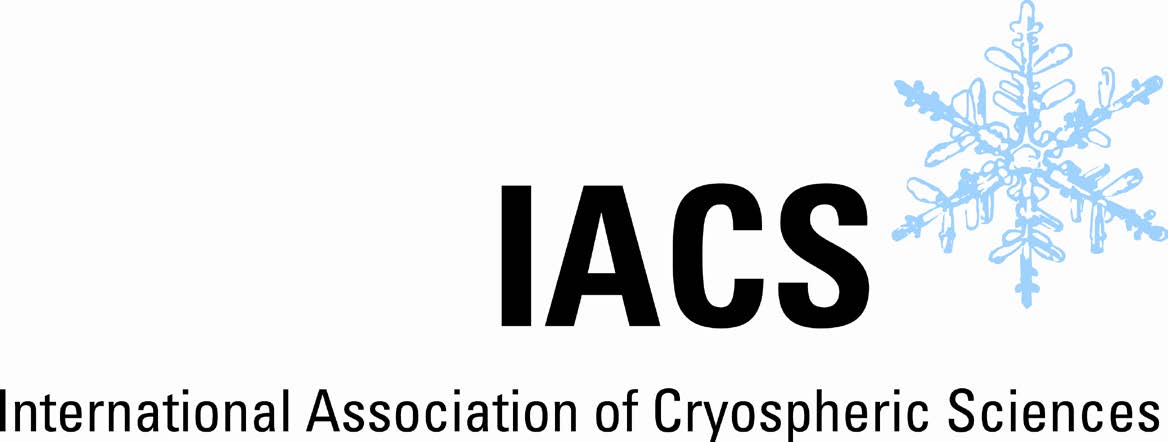 The objectives of the IACS are:
The objectives of the IACS are:- to promote studies of cryospheric subsystems of the Earth solar systems
to encourage research in the above subjects by members of the cryospheric community, national and international institutions and programmes, and individual countries through collaboration and international co-ordination
- to provide an opportunity on an international basis for discussion and publication of the results of the above research
- to promote education and public awareness on the cryosphere
- to facilitate the standardisation of measurement or collection of data on cryospheric systems and of the analysis, archiving and publication of such data. -
International Arctic Science Committee (IASC)
 The International Arctic Science Committee (IASC) encourages, facilitates and promotes leading-edge multi-disciplinary research to foster a greater scientific understanding of the arctic region and its role in the Earth system. New and next generations of researchers will be faced with increasingly critical challenges due to the impacts of climate change on these regions and their global significance. IASC believes it is of great importance to foster these young researchers and promotes and involves early career scientists working in the Arctic by:
The International Arctic Science Committee (IASC) encourages, facilitates and promotes leading-edge multi-disciplinary research to foster a greater scientific understanding of the arctic region and its role in the Earth system. New and next generations of researchers will be faced with increasingly critical challenges due to the impacts of climate change on these regions and their global significance. IASC believes it is of great importance to foster these young researchers and promotes and involves early career scientists working in the Arctic by:- striving for representation of early career researchers in the organization, including participation in business strategy, planning and other meetings and activities;
- providing endorsement, support and dissemination of information on activities, projects and request for participation;
- providing travel grants to early career scientist for selected conferencesFor more information you can take a look at the website www.iasc.info or contact the secretariat through e-mail This email address is being protected from spambots. You need JavaScript enabled to view it.
-
International Arctic Social Sciences Association (IASSA)
 The International Arctic Social Sciences Association (IASSA) was founded in 1990 in Fairbanks, Alaska, at a meeting held in conjunction with the 7th Inuit Studies Conference.
The International Arctic Social Sciences Association (IASSA) was founded in 1990 in Fairbanks, Alaska, at a meeting held in conjunction with the 7th Inuit Studies Conference.The creation of IASSA follows the suggestion, made at the Conference on Coordination of Research in the Arctic held in Leningrad in 1988, to establish an international association to represent Arctic social scientists, with the Arctic and social sciences defined in a broad and inclusive manner.
Among key objectives of IASSA are to promote and stimulate international cooperation and to increase the participation of social scientists in national and international arctic research; to promote communication and coordination with other related organizations; and to promote mutual respect, communication, and collaboration between social scientists and the peoples of the north, while recognizing these are not mutually exclusive groups.
For more information please visit http://www.iassa.org/
-
International Glaciological Society (IGS)
 The International Glaciological Society was founded in 1936 to provide a focus for individuals interested in practical and scientific aspects of snow and ice.
The International Glaciological Society was founded in 1936 to provide a focus for individuals interested in practical and scientific aspects of snow and ice.The objects of the Society are enshrined in its Constitution and are: to stimulate interest in and encourage research into the scientific and technical problems of snow and ice in all countries; to facilitate and increase the flow of glaciological ideas and information; to publish the Journal of Glaciology, the Annals of Glaciology and ICE (the News Bulletin of the Society) and any other appropriate publications, such as books and monographs and finally to sponsor lectures, field meetings and symposia.
For more information please visit IGS website at http://www.igsoc.org/
-
International Network for Terrestrial Research and Monitoring in the Arctic (INTERACT)
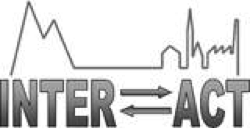 INTERACT is an infrastructure project under the auspices of SCANNET, a circumarctic network of currently 79 terrestrial field bases in northern Europe, Russia, US, Canada, Greenland, Iceland, the Faroe Islands and Scotland as well as stations in northern alpine areas. INTERACT specifically seeks to build capacity for research and monitoring in the European Arctic and beyond, and is offering access to numerous research stations through the Transnational Access program.
INTERACT is an infrastructure project under the auspices of SCANNET, a circumarctic network of currently 79 terrestrial field bases in northern Europe, Russia, US, Canada, Greenland, Iceland, the Faroe Islands and Scotland as well as stations in northern alpine areas. INTERACT specifically seeks to build capacity for research and monitoring in the European Arctic and beyond, and is offering access to numerous research stations through the Transnational Access program.The project, which is funded by the EU, has a main objective to build capacity for identifying, understanding, predicting and responding to diverse environmental changes throughout the wide environmental and land-use envelopes of the Arctic. This is necessary because the Arctic is so vast and so sparsely populated that environmental observing capacity is limited compared to most other latitudes.
INTERACT is multidisciplinary: together, the stations in INTERACT host thousands of scientists from around the world who work on projects within the fields of glaciology, permafrost, climate, ecology, biodiversity and biogeochemical cycling. The INTERACT stations also host and facilitate many international single-discipline networks and aid training by hosting summer schools.
More about IPA at http://www.eu-interact.org/ -
International Permafrost Association (IPA)
 The International Permafrost Association, founded in 1983, has as its objectives to foster the dissemination of knowledge concerning permafrost and to promote cooperation among persons and national or international organizations engaged in scientific investigation and engineering work on permafrost. Membership is through adhering national or multinational organizations or as individuals in countries where no Adhering Body exists. The IPA is governed by its officers and a Councilconsisting of representatives from 26 Adhering Bodies having interests in some aspect of theoretical, basic and applied frozen ground research, including permafrost, seasonal frost, artificial freezing and periglacial phenomena.Committees, Working Groups, and Task Forces organize and coordinate research activities and special projects.
The International Permafrost Association, founded in 1983, has as its objectives to foster the dissemination of knowledge concerning permafrost and to promote cooperation among persons and national or international organizations engaged in scientific investigation and engineering work on permafrost. Membership is through adhering national or multinational organizations or as individuals in countries where no Adhering Body exists. The IPA is governed by its officers and a Councilconsisting of representatives from 26 Adhering Bodies having interests in some aspect of theoretical, basic and applied frozen ground research, including permafrost, seasonal frost, artificial freezing and periglacial phenomena.Committees, Working Groups, and Task Forces organize and coordinate research activities and special projects.The IPA became an Affiliated Organization of the International Union of Geological Sciences in July 1989. The Association's primary responsibilities are convening International Permafrost Conferences, undertaking special projects such as preparing databases, maps, bibliographies, and glossaries, and coordinating international field programs and networks. Conferences were held in West Lafayette, Indiana, USA, 1963; in Yakutsk, Siberia, 1973; in Edmonton, Canada, 1978; in Fairbanks, Alaska, 1983; in Trondheim, Norway, 1988; in Beijing, China, 1993; in Yellowknife, Canada, 1998, in Zurich, Switzerland, 2003, and in Fairbanks, Alaska, USA, 2008. Field excursions are an integral part of each Conference, and are organized by the host country.
More about IPA at www.permafrost.org
-
Polar Educators International (PEI)
 Polar Educators International (PEI) announces the establishment of a formal international professional network for those that educate in, for, and about the polar regions.
Polar Educators International (PEI) announces the establishment of a formal international professional network for those that educate in, for, and about the polar regions.Membership is open to everyone in the polar science and science education communities. The founding members come from polar and non-polar nations such as Belgium, the United Kingdom, India, Italy, the United States, Canada, Norway, and Portugal. The new group draws together museums, schools, science centers, formal and informal education, expeditions, NGOs, companies, and governmental and nonprofit organizations. Working across national, disciplinary, and age boundaries, PEI wants to improve science education for the next generation of policymakers, entrepreneurs, explorers, citizen scientists, journalists, and educators.
The new group, which consists of more than 200 leading educators and scientists, will develop innovative teaching resources and practices designed to bring the importance of the polar regions closer to home. We intend to excite students about learning and about their planet, and thereby change the terms of debate, and the framework of education, to rekindle student and public engagement with global environmental changes.
The PEI Steering Committee is currently doing strategic planning, planning for upcoming conference and polar events, developing a formal web presence, and building the network of polar educators and scientists.
For further information or to become a member, please email: This email address is being protected from spambots. You need JavaScript enabled to view it. or visit their website at http://polareducator.org/
Or ask to join the group's Facebook page: http://www.facebook.com/groups/247660677828.
-
Scientific Committee on Antarctic Research (SCAR)
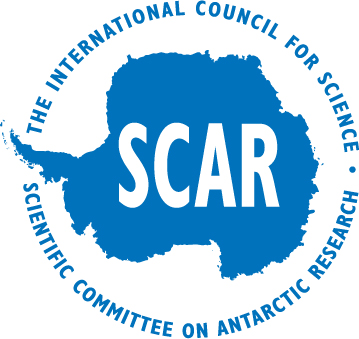 The Scientific Committee on Antarctic Research (SCAR) is a committee of the International Council for Science (ICSU), that is charged with the initiation, promotion and co-ordination of scientific research in Antarctica. SCAR also provides international, independent scientific advice to the Antarctic Treaty system. To meet the objective of developing scientific capacity in all SCAR Members, especially with respect to younger scientists, and promoting the incorporation of Antarctic science in education at all levels, SCAR will take the following strategic approach:
The Scientific Committee on Antarctic Research (SCAR) is a committee of the International Council for Science (ICSU), that is charged with the initiation, promotion and co-ordination of scientific research in Antarctica. SCAR also provides international, independent scientific advice to the Antarctic Treaty system. To meet the objective of developing scientific capacity in all SCAR Members, especially with respect to younger scientists, and promoting the incorporation of Antarctic science in education at all levels, SCAR will take the following strategic approach:- works towards building human and institutional capacity for Antarctic science by a variety of means;
- promotes education of the public and of students so as to increase awareness of the value of Antarctic science; and
- promotes the development of Antarctic science through appropriate means.
- provides fellowships to encourage the active involvement of early career scientists and engineers in Antarctic scientific research, and to strengthen international capacity and cooperation in Antarctic research.For more information, visit http://www.scar.org or contact the secretariat by email This email address is being protected from spambots. You need JavaScript enabled to view it. or telephone +44 1223 336550.
-
The University of the Arctic
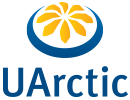 The University of the Arctic (UArctic) is a cooperative network of universities, colleges and other organisations committed to higher education and research in the North. UArctic's overall goal is to create a strong, sustainable circumpolar region by empowering northerners and northern communities through education and shared knowledge.
The University of the Arctic (UArctic) is a cooperative network of universities, colleges and other organisations committed to higher education and research in the North. UArctic's overall goal is to create a strong, sustainable circumpolar region by empowering northerners and northern communities through education and shared knowledge.UArctic seeks to empower the north, improve access to education, serve their community, create shared knowledge, build regional identity, strengthen the voice of the Arctic.
For more information, look at their website: http://www.uarctic.org/.
Major Partnerships without MoU:
-
American Geophysical Union (AGU)
 The American Geophysical Union (AGU), which was established in 1919 by the National Research Council and for more than 50 years operated as an unincorporated affiliate of the National Academy of Sciences, is now a nonprofit corporation chartered under the laws of the District of Columbia. The Union is dedicated to the furtherance of the geophysical sciences through the individual efforts of its members and in cooperation with other national and international scientific organizations.
The American Geophysical Union (AGU), which was established in 1919 by the National Research Council and for more than 50 years operated as an unincorporated affiliate of the National Academy of Sciences, is now a nonprofit corporation chartered under the laws of the District of Columbia. The Union is dedicated to the furtherance of the geophysical sciences through the individual efforts of its members and in cooperation with other national and international scientific organizations.More about AGU at http://www.agu.org
-
Arctic Monitoring and Assessment Programme (AMAP)
 The Arctic Monitoring and Assessment Programme is one of five Working Groups of the Arctic Council.
The Arctic Monitoring and Assessment Programme is one of five Working Groups of the Arctic Council.The primary function of AMAP is to advise the governments of the eight Arctic countries (Canada, Denmark/Greenland, Finland, Iceland, Norway, Russia, Sweden and the United States) on matters relating to threats to the Arctic region from pollution, and associated issues.
AMAP has a mandate to monitor and assess the status of the Arctic region with respect to pollution (e.g., persistent organic pollutants, heavy metals, radionuclides, acidification, and petroleum hydrocarbons) and climate change issues by documenting levels and trends, pathways and processes, and effects on ecosystems and humans, and by proposing actions to reduce associated threats for consideration by governments. This mandate is fulfilled through the implementation of a circumpolar monitoring and assessment programme. AMAP's primary function is to provide sound science-based information to inform policy and decision-making processes in relation to issues covered by its mandate.
AMAP has produced a series of high quality scientifically-based assessments of the pollution status of the Arctic. The AMAP assessment reports (both the popular readable versions and detailed scientific background documents) are available as electronic documents elsewhere on this website. The AMAP assessments are the result of cooperative efforts involving a large number of scientists, indigenous peoples' representatives, and representatives of the Arctic countries and AMAP observing countries and organizations. These assessments have provided a basis for development of the Arctic Council Action Plan (ACAP).
For more information, look at their website: http://www.amap.no/.
-
Arctic Portal
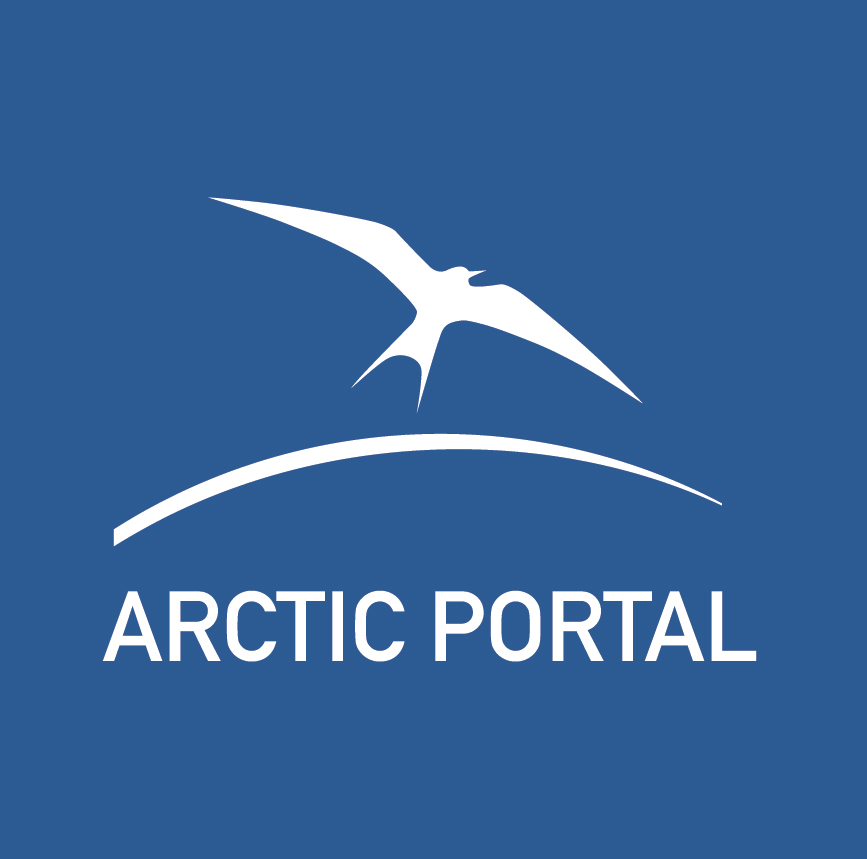 The Arctic Portal is a comprehensive gateway to Arctic information and data on the internet, increasing information sharing and co-operation among Arctic stakeholders and granting exposure to Arctic related information and data.
The Arctic Portal is a comprehensive gateway to Arctic information and data on the internet, increasing information sharing and co-operation among Arctic stakeholders and granting exposure to Arctic related information and data.It is a network of information and data sharing and serves as host to many web sites in a circumpolar context, supporting co-operation and outreach in science, education, and policy making.
The Arctic Portal was established originally in 2006 as an IPY-project operating in cooperation with the Arctic Council Working Groups CAFF and PAME, but is today comprehensive gateway to Arctic information and data with cooperating partners ranging from international organisations and research centres to international projects, indigenous peoples associations and other Arctic Stakeholders.
The Arctic Portal hosts various websites for Arctic related organizations and affiliations. The websites are around 40 and the list is constantly growing. This Arctic online community gives the organizations and affiliations a common venue to be visible on the web and increases synergy, making information more accessible for all.
The Arctic Portal is located in Akureyri in Iceland.
Website: http://www.arcticportal.org/
-
Climate and Cryosphere (CliC) Project
 The "Climate and Cryosphere" project, encourages and promotes research into the cryosphere and its interactions as part of the global climate system. It seeks to focus attention on the most important issues, encourage communication between researchers with common interests in cryospheric and climate science, promote international co-operation, and highlight the importance of this field of science to policy makers, funding agencies, and the general public. CliC also publishes significant findings regarding the role of the cryosphere in climate, and recommends directions for future study. CliC was established as a core project of the World Climate Research Programme with the International Project Office hosted by the Norwegian Polar Institute in Tromsø, Norway.
The "Climate and Cryosphere" project, encourages and promotes research into the cryosphere and its interactions as part of the global climate system. It seeks to focus attention on the most important issues, encourage communication between researchers with common interests in cryospheric and climate science, promote international co-operation, and highlight the importance of this field of science to policy makers, funding agencies, and the general public. CliC also publishes significant findings regarding the role of the cryosphere in climate, and recommends directions for future study. CliC was established as a core project of the World Climate Research Programme with the International Project Office hosted by the Norwegian Polar Institute in Tromsø, Norway.For more information, look at their website: http://www.climate-cryosphere.org/.
-
Conservation of the Arctic Flora and Fauna (CAFF)
 The CAFF Program is guided by the CAFF Strategic Plan for the Conservation of Arctic Biological Diversityand biennial CAFF Work Plans. The CAFF 2006-2008 Work Plan emphasizes cooperation and collaboration with other Arctic Council Working Groups, and organizations outside of the Arctic Council, and makes efforts to actively contribute to the global conservation agenda. This Work Plan responds to the findings and recommendations of the Arctic Climate Impact Assessment, the Arctic Marine Strategic Plan and CAFF's Arctic Flora: Status and Trends.
The CAFF Program is guided by the CAFF Strategic Plan for the Conservation of Arctic Biological Diversityand biennial CAFF Work Plans. The CAFF 2006-2008 Work Plan emphasizes cooperation and collaboration with other Arctic Council Working Groups, and organizations outside of the Arctic Council, and makes efforts to actively contribute to the global conservation agenda. This Work Plan responds to the findings and recommendations of the Arctic Climate Impact Assessment, the Arctic Marine Strategic Plan and CAFF's Arctic Flora: Status and Trends.
CAFF's activities include:
- Monitoring of Arctic biodiversity
- Conservation of Arctic species and their habitats
- Consider the establishment of protected areas
- Conservation of nature outside protected areas
- Integration of conservation objectives and measures for economic sectors of the societyFor more information and resources, check out the CAFF website: www.caff.is
-
Foundation for Good Governance of International Spaces (Our Spaces)
 The Foundation for the Good Governance of International Spaces (Our Spaces) is advancing education, raising awareness and promoting research about the governance of regions, resources and impacts beyond the boundaries of nations. Humankind has established institutions for managing the high seas, Antarctica, outer space and the deep sea, setting these regions apart as "international spaces" (also known as areas beyond national jurisdictions and global commons) and providing a key for our civilization to balance national interests and common interests for the benefit of present and future generations. Our Spaces (www.internationalspaces.org) seeks to engage enthusiastic early career scientists in activities that include Antarctica Day (December 1st - the day the Antarctic Treaty was signed in the interests of all humankind) and other global outreach efforts that involve our international spaces.
The Foundation for the Good Governance of International Spaces (Our Spaces) is advancing education, raising awareness and promoting research about the governance of regions, resources and impacts beyond the boundaries of nations. Humankind has established institutions for managing the high seas, Antarctica, outer space and the deep sea, setting these regions apart as "international spaces" (also known as areas beyond national jurisdictions and global commons) and providing a key for our civilization to balance national interests and common interests for the benefit of present and future generations. Our Spaces (www.internationalspaces.org) seeks to engage enthusiastic early career scientists in activities that include Antarctica Day (December 1st - the day the Antarctic Treaty was signed in the interests of all humankind) and other global outreach efforts that involve our international spaces.Website: http://www.ourspaces.org.uk/
-
High North Academy
 The University of Tromsø (UiT) and collaborating research institutes are educating increasing numbers of researchers, and due to the investments in High North Strategy will continue to do so. This has led to a greater demand for PhD-courses, better support for PhD-students under training, and career counselling for PhD-students. As research is becoming more and more competitive, future researchers need to master a wide range of skills, from good quantitative skills when designing and analysing data to good verbal skills when writing, from good administrative skills when writing research proposals to good social skills when networking towards management and stakeholders. At the same time research communication is becoming an increasingly important aspect of doing research. Both the European Union and the Norwegian Research Council demand a plan for good research communication and outreach, and the efforts in these areas are regarded as an important part of research projects.
The University of Tromsø (UiT) and collaborating research institutes are educating increasing numbers of researchers, and due to the investments in High North Strategy will continue to do so. This has led to a greater demand for PhD-courses, better support for PhD-students under training, and career counselling for PhD-students. As research is becoming more and more competitive, future researchers need to master a wide range of skills, from good quantitative skills when designing and analysing data to good verbal skills when writing, from good administrative skills when writing research proposals to good social skills when networking towards management and stakeholders. At the same time research communication is becoming an increasingly important aspect of doing research. Both the European Union and the Norwegian Research Council demand a plan for good research communication and outreach, and the efforts in these areas are regarded as an important part of research projects.This is where HNA comes in. Even though the main target group of HNA activities is PhD-students, the courses will be open for a wide range people, from undergraduates to research and communication staff. In addition to more academic HNA courses, the courses in the career development module will address contact with industry and management sectors. HNA will have a strong High North profile through the focus in High North Research, but all the courses will be promoted to a body of national and international students and researchers through our partners (see above). The HNA courses will bring together students and researchers across different scientific fields, facilitate interdisciplinary and inter-institutional collaboration, and stimulate research output and communication. HNA aims to establish a strong foundation for further improvement of research training and education in the High North.
The aims of the High North Academy (HNA) are to educate future researchers and build the competence of current and future researchers. This HNA aims to achieve by developing and coordinate research training courses in transferable and quantitative skills. HNA will also promote High North higher education and research both nationally and internationally. The overall aim is to increase the quality of research training in the High North, and to improve recruitment to High North research.
More about High North Academy at http://www.highnorthacademy.com/


